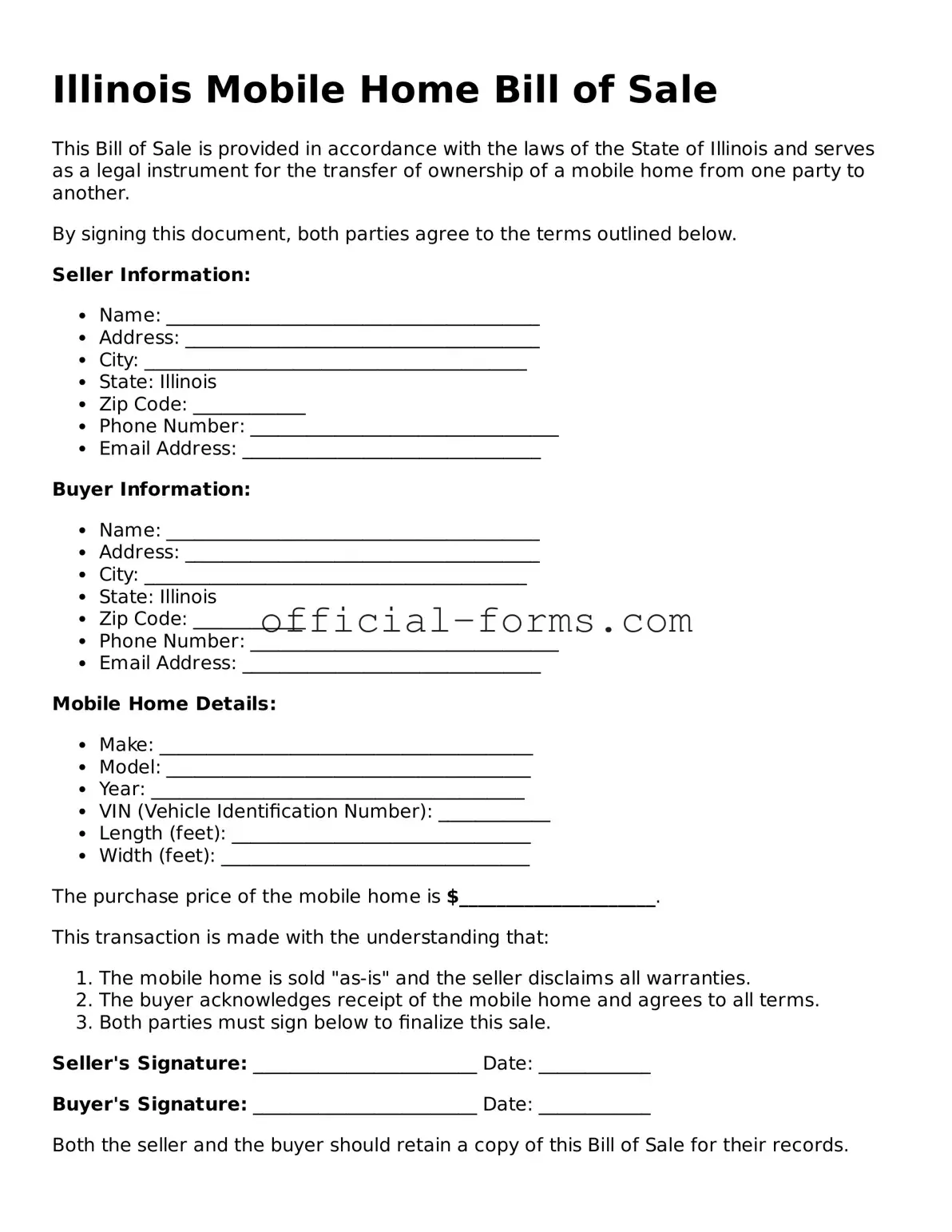Official Illinois Mobile Home Bill of Sale Document
The Illinois Mobile Home Bill of Sale is a legal document used to transfer ownership of a mobile home from one party to another. This form provides essential details about the transaction, including the names of the buyer and seller, the purchase price, and a description of the mobile home. Completing this document is important for both parties to ensure a clear and valid transfer of ownership.
Open My Mobile Home Bill of Sale Now

Official Illinois Mobile Home Bill of Sale Document
Open My Mobile Home Bill of Sale Now
Don’t leave your form incomplete
Finish Mobile Home Bill of Sale online quickly from start to download.
Open My Mobile Home Bill of Sale Now
or
➤ PDF
